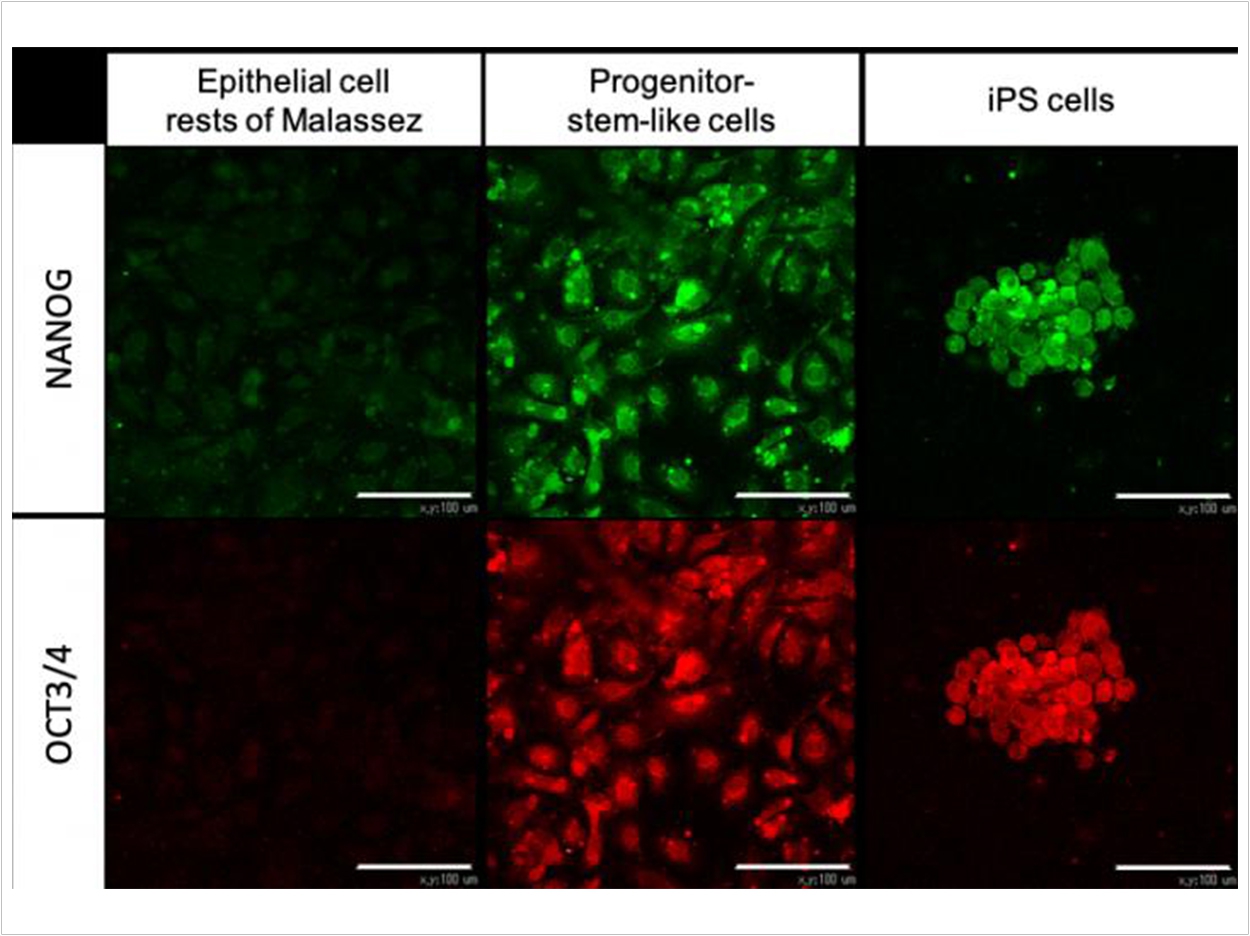
Researchers at the Health Sciences University of Hokkaido used stimulation with epigenetic agents to transform epithelial cell rests of Malassez derived from periodontal ligament into progenitor stem-like cells. Subsequently, the progenitor stem-like cells were directly differentiated into endothelial, mesenchymal stem, and osteogenic cells that constitute the periodontal ligament.
Stem cells derived from dental pulp or periodontal ligament have been used in regenerative dentistry. Although it is relatively easy to collect dental pulp stem cells, the researchers said, it is difficult to obtain adequate numbers of good quality cells. A stable supply is required for their application in regenerative dentistry.
In the current study, the researchers generated the progenitor stem-like cells from ERM cells in the periodontal ligament using epigenetic modifications without gene transfer. The progenitor stem-like cells were differentiated into endothelial, mesenchymal stem, and osteogenic cells, which constitute the periodontal ligament, using a direct reprogramming method that induces the differentiation of progenitor stem cells into the target cells.
The isolated ERM cells were induced to differentiate into progenitor stem-like cells, which were similar to stem cells, following stimulation with the epigenetic agents, 5-Azacytidine and Valporic acid, for one week. The progenitor stem-like cells expressed the protein stem cell markers NANOG and OCT3/4, which were also observed in the iPS cells. The progenitor stem-like cells were differentiated into endothelial, mesenchymal stem, and osteogenic cells. The expression of the specific marker for each cell type was confirmed.
According to the researchers, their findings may contribute to the development of new periodontal regenerative therapy. Epigenetic agents have been successfully applied in various human diseases, they said, including cancers. Nevertheless, they added, further investigations are needed to confirm the findings of this study.
The study, “Direct Reprogramming of Epithelial Cell Rests of Malassez into Mesenchymal-Like Cells by Epigenetic Agents,” was published by Scientific Reports.
Related Articles
A Missing Epigenetic Factor Leads to Bone Loss and Osteoporosis
Lithium Chloride Improves Oral Mucositis and Taste Dysfunction
EMT Inhibitor May Improve Oral Cancer Treatment



